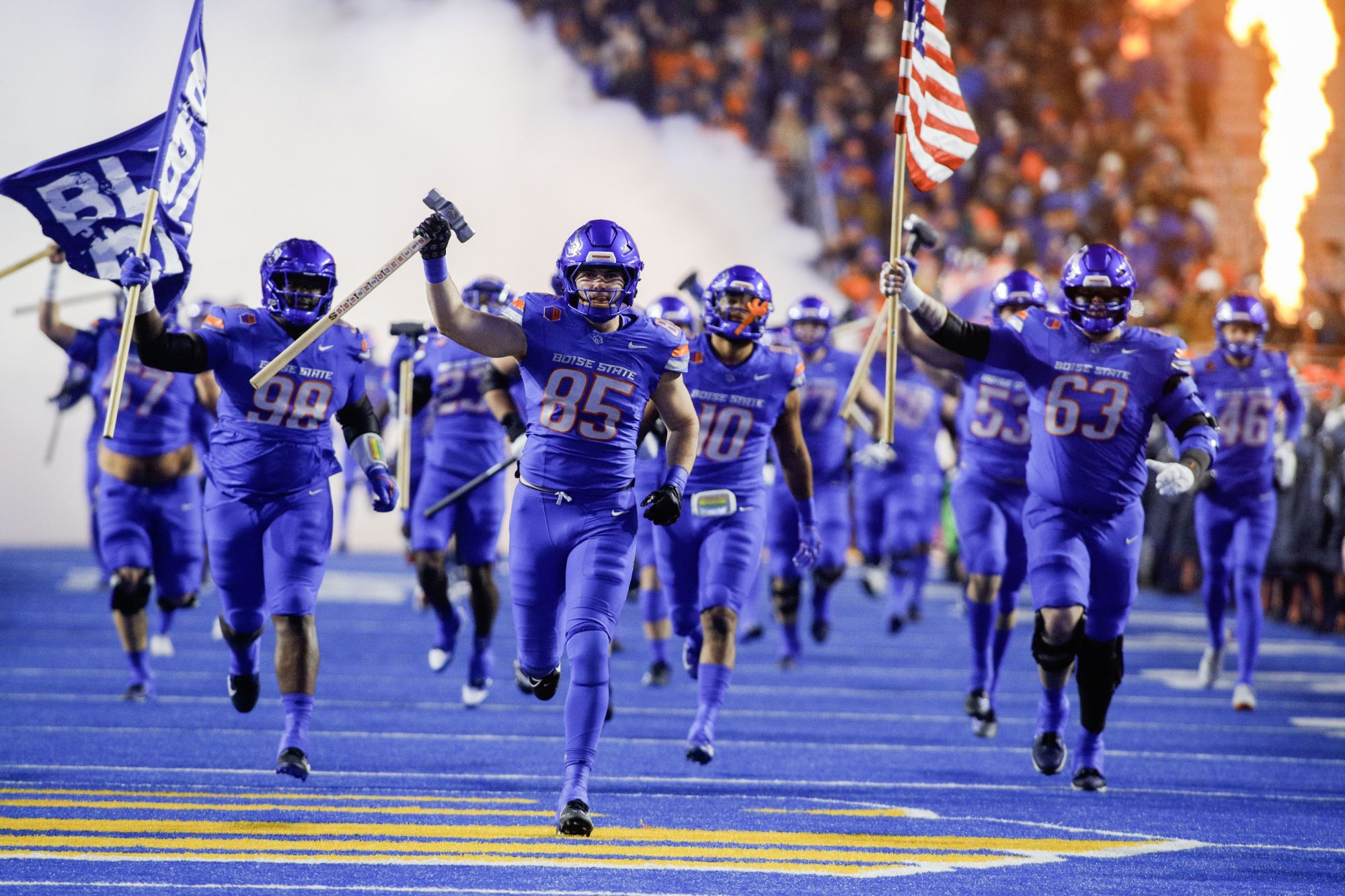As members of the Mountain West, the Boise State Broncos are outside the exclusive power conference club in college football. But they still fully planned to compete with the sport’s richest members.
“We very much consider ourselves the Power 4. And we have very high expectations,” athletic director Jeramiah Dickey told Front Office Sports recently. “And we want to compete on the national level.”
They’ve made that expectation a reality. Boise State is the first-ever Group of 5 school to reach the 12-team College Football Playoff—the only non-power conference school to do so.
The format guaranteed at least one Group of 5 team per year, given that the top five conference champions earned a bid to the Playoff, and there are now only four power conference leagues.
But the Broncos, ranked No. 9 overall and as the third-highest conference champion above Arizona State and Clemson, didn’t even need that technicality to make it into the bracket.
It’s an impressive feat for a team with a budget millions lower than its power conference counterparts: the athletic department earned $60.6 million in in 2022-23, for example. They’ll play either Penn State, which earned $202 million in 2022-23 or SMU, which had a budget of $80 million in 2022-23 while in the AAC, but has since been bankrolled by billionaire donors in its ACC bid.
Over the past few weeks, college sports administrators—including Big 12 commissioner Brett Yormark—have been vocal about advocating for their own teams to be highly ranked. On Saturday night, Mountain West commissioner Gloria Nevarez released a strong statement in support of the Broncos, gesturing at how Group of 5 teams are often considered less-than.
“Participation in the college football playoff isn’t about entitlement,” she said. “It should not be contingent upon a conference patch or the logo on the helmet. It’s based on performance and Mountain West champion Boise State’s body of work this season.” Nevarez noted they at least deserved to be ranked above the Big 12 champion—but they were even higher.
Regardless of the outcome of this year’s playoff run, the Broncos fully intend to continue their success in future years. They’ll also move to the Pac-12 in 2026 as part of another seismic wave of realignment—but it’s unclear how much more money they could earn in the rebuilt league.
But conference realignment isn’t the only change coming to college football.
During the College Football Playoff Selection Show on ESPN, former Alabama football coach Nick Saban wondered aloud if schools that opt to participate fully in revenue-sharing—which could begin in 2025 if the House v. NCAA settlement is approved—would join a league of their own, playing each other in the future and battling for playoff spots while programs that don’t participate will be left in the cold.
The Broncos are already building a full-fledged salary cap management department in anticipation of the settlement proposal being approved in April. That should help the school compete in the increasingly volatile recruiting landscape that has been thrown into chaos with NIL (name, image, and likeness) deals and an unrestricted transfer portal.
Whether now or in the future, the Broncos clearly have no intention of being relegated.






![[Subscription Customers Only] Jun 15, 2025; Seattle, Washington, USA; Botafogo owner John Textor inside the stadium before the match during a group stage match of the 2025 FIFA Club World Cup at Lumen Field.](https://frontofficesports.com/wp-content/uploads/2026/02/USATSI_26465842_168416386_lowres-scaled.jpg?quality=100&w=1024)
![[Subscription Customers Only] Jul 13, 2025; East Rutherford, New Jersey, USA; Chelsea FC midfielder Cole Palmer (10) celebrates winning the final of the 2025 FIFA Club World Cup at MetLife Stadium](https://frontofficesports.com/wp-content/uploads/2026/02/USATSI_26636703-scaled-e1770932227605.jpg?quality=100&w=1024)









